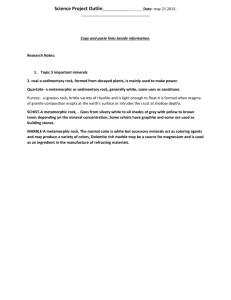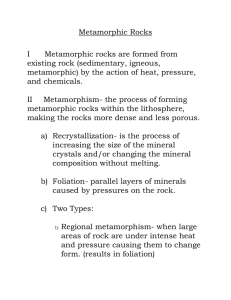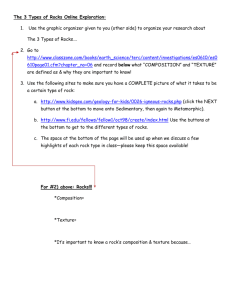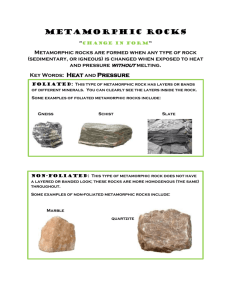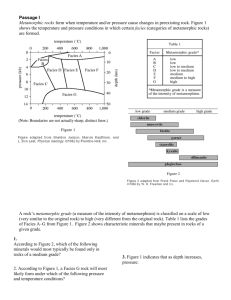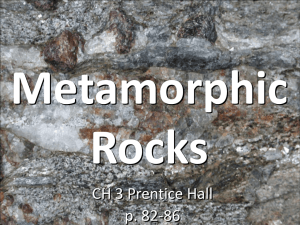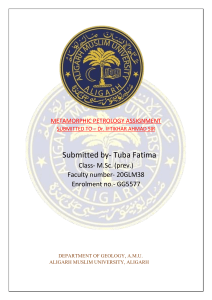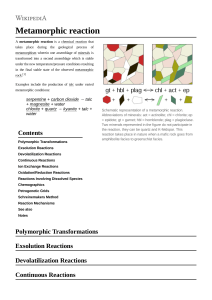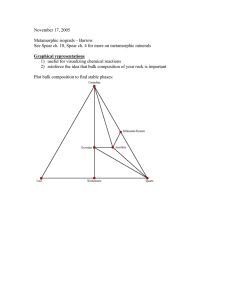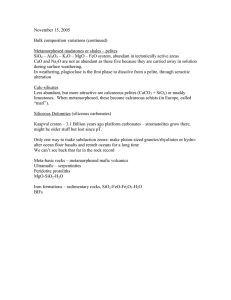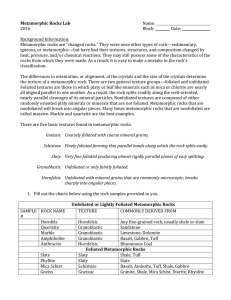Lab 12: Progressive Metamorphism of Pelites
advertisement
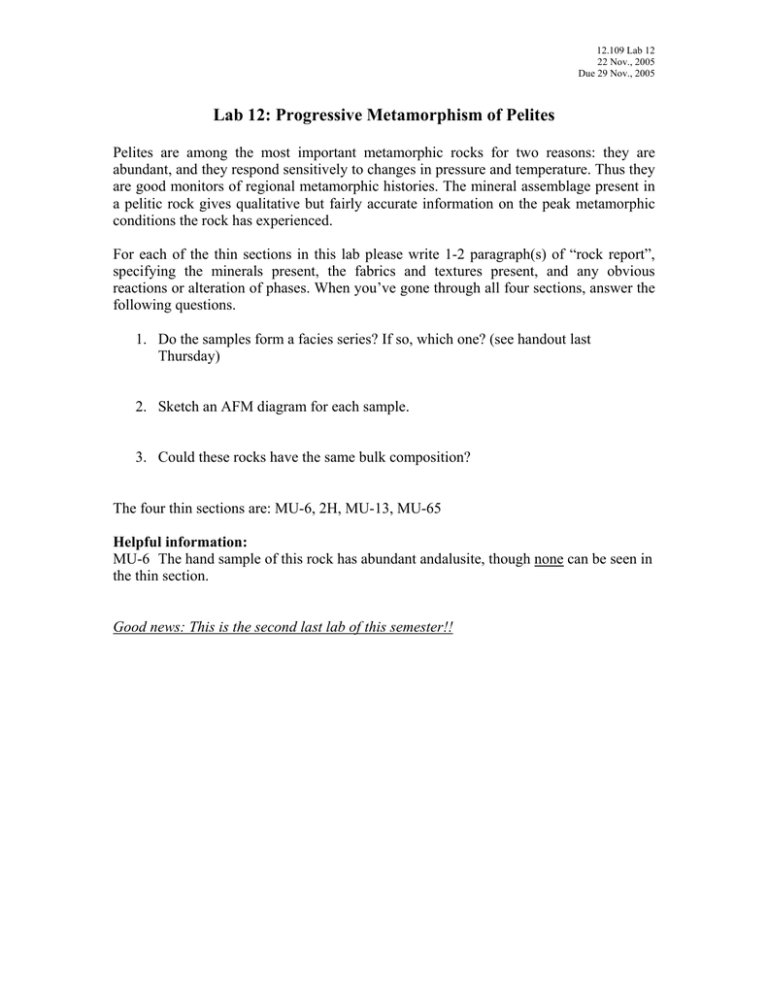
12.109 Lab 12 22 Nov., 2005 Due 29 Nov., 2005 Lab 12: Progressive Metamorphism of Pelites Pelites are among the most important metamorphic rocks for two reasons: they are abundant, and they respond sensitively to changes in pressure and temperature. Thus they are good monitors of regional metamorphic histories. The mineral assemblage present in a pelitic rock gives qualitative but fairly accurate information on the peak metamorphic conditions the rock has experienced. For each of the thin sections in this lab please write 1-2 paragraph(s) of “rock report”, specifying the minerals present, the fabrics and textures present, and any obvious reactions or alteration of phases. When you’ve gone through all four sections, answer the following questions. 1. Do the samples form a facies series? If so, which one? (see handout last Thursday) 2. Sketch an AFM diagram for each sample. 3. Could these rocks have the same bulk composition? The four thin sections are: MU-6, 2H, MU-13, MU-65 Helpful information: MU-6 The hand sample of this rock has abundant andalusite, though none can be seen in the thin section. Good news: This is the second last lab of this semester!!

